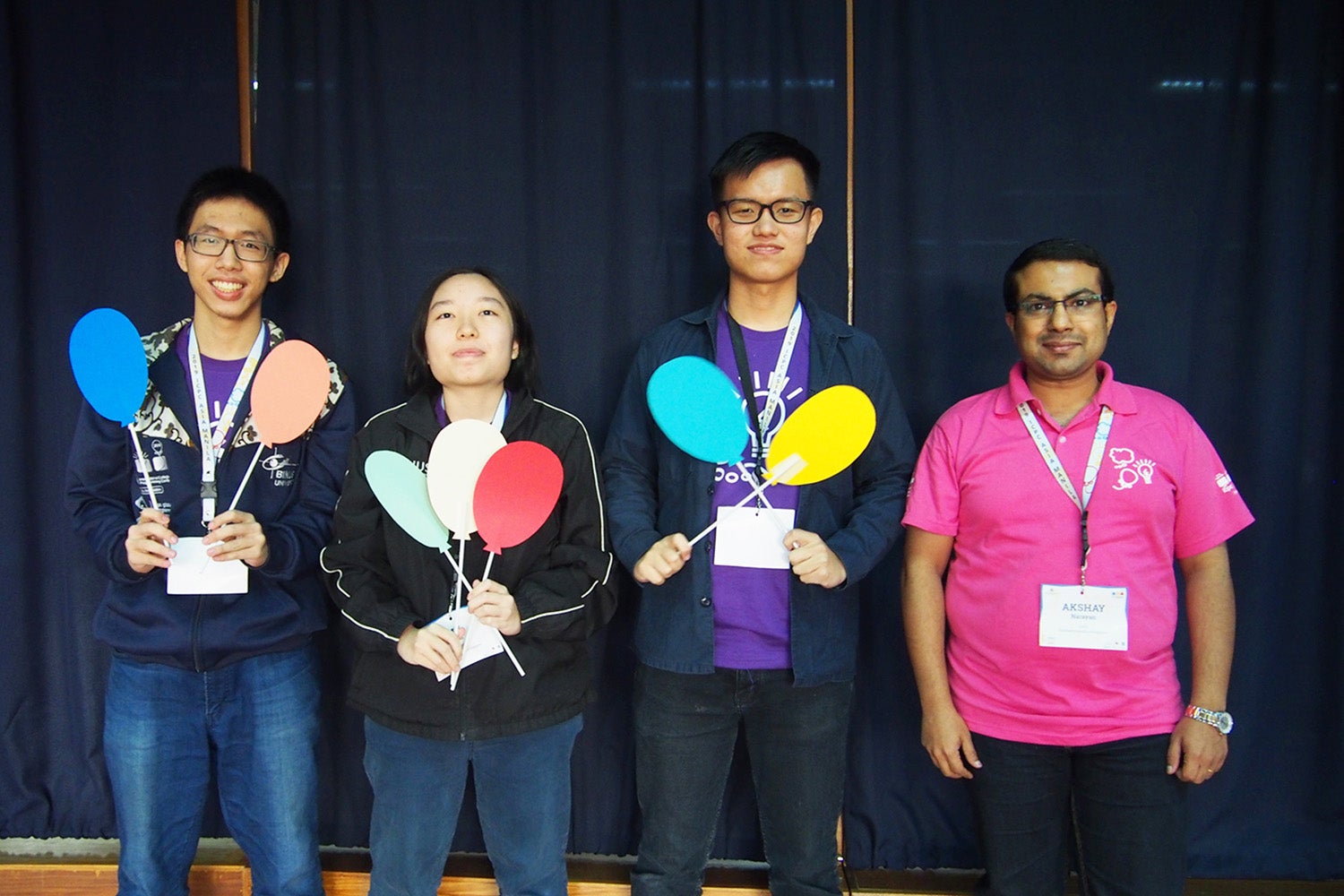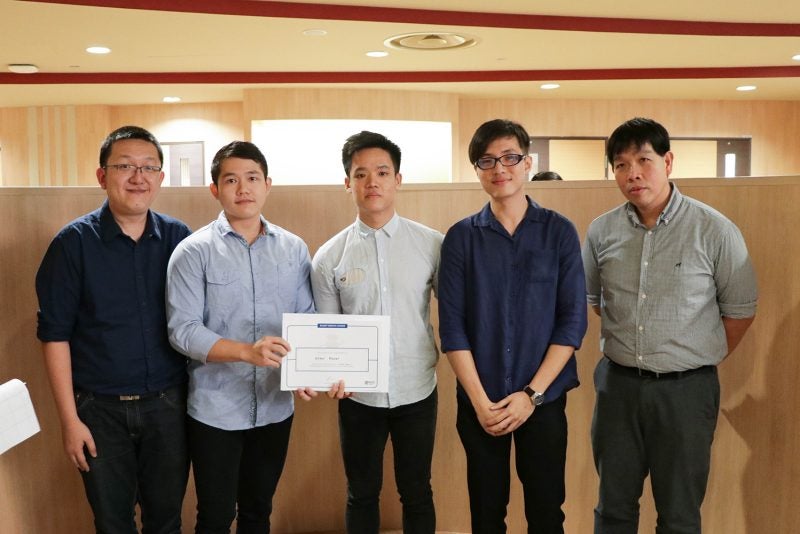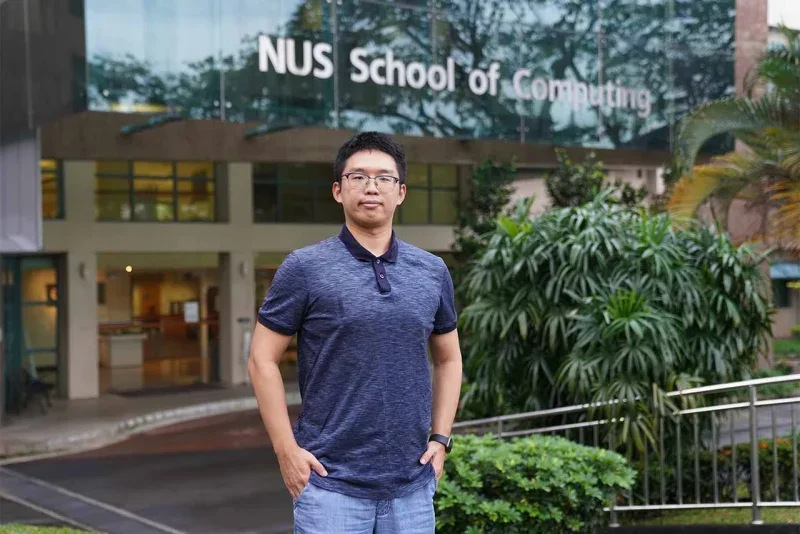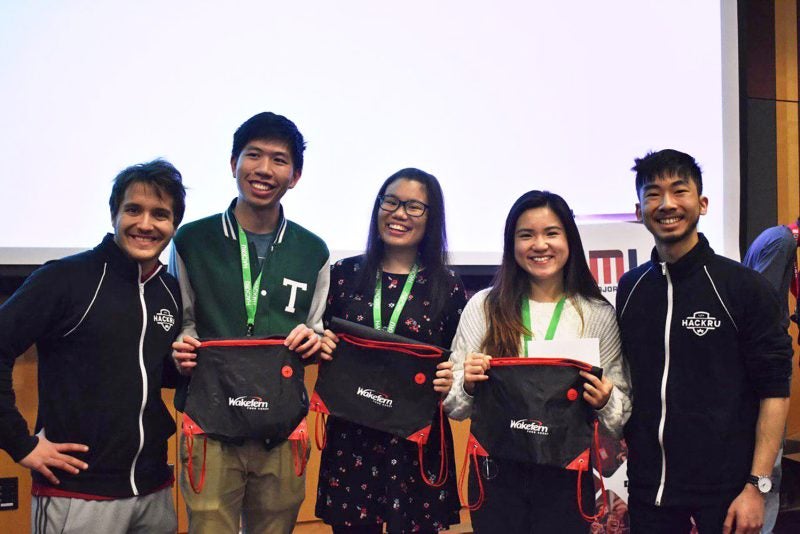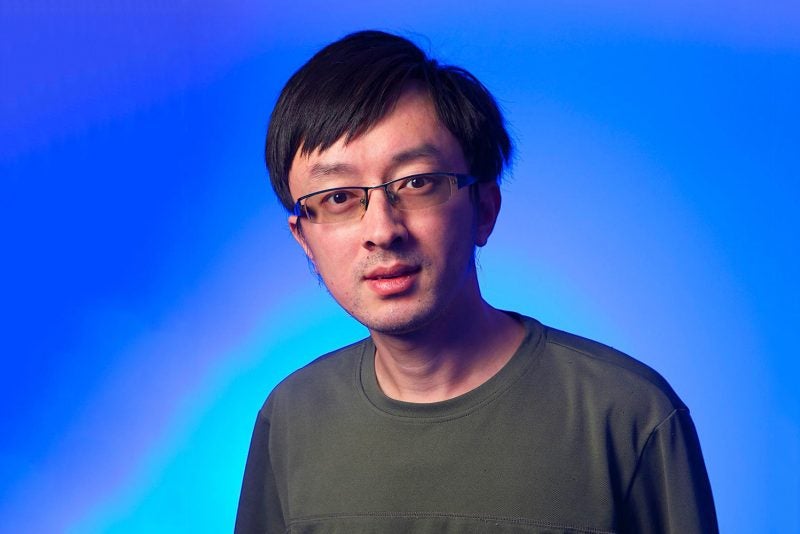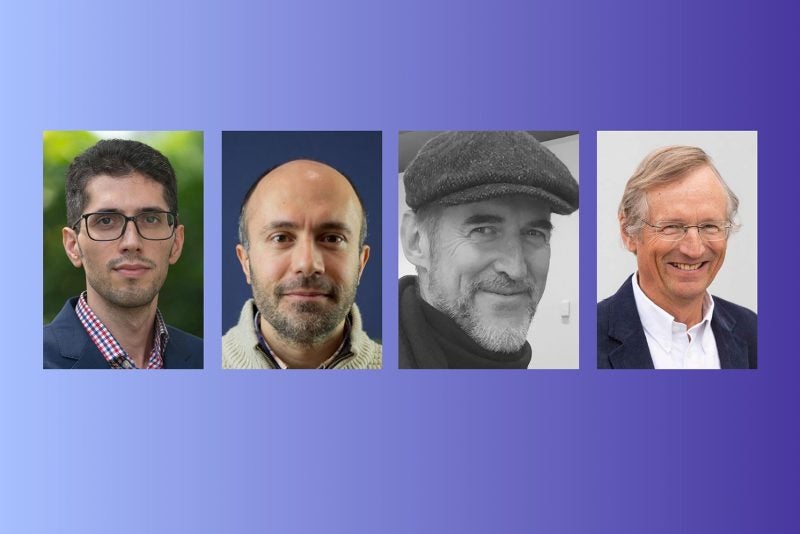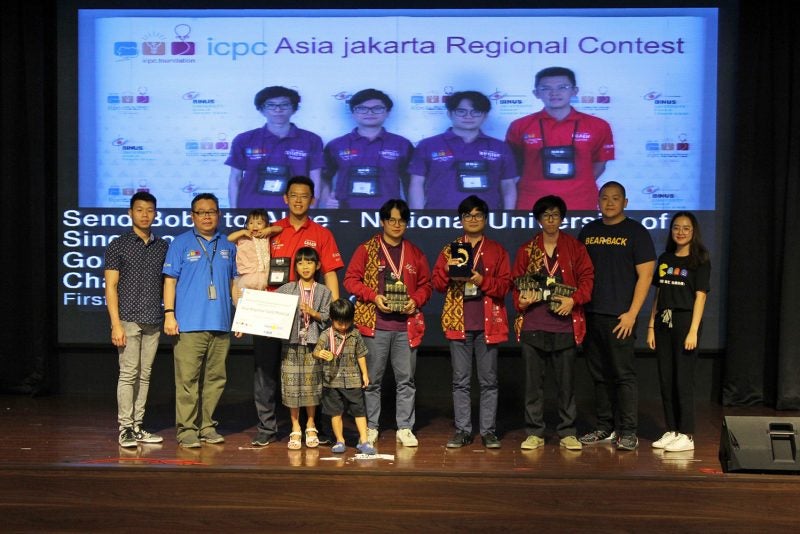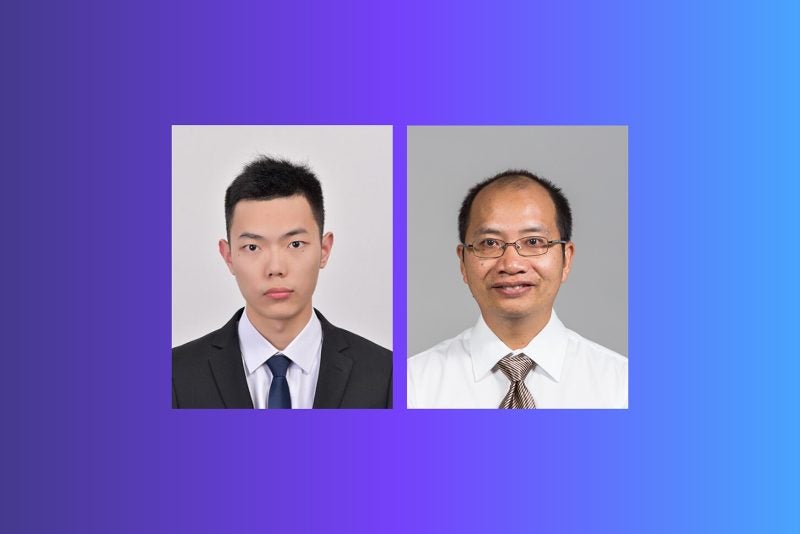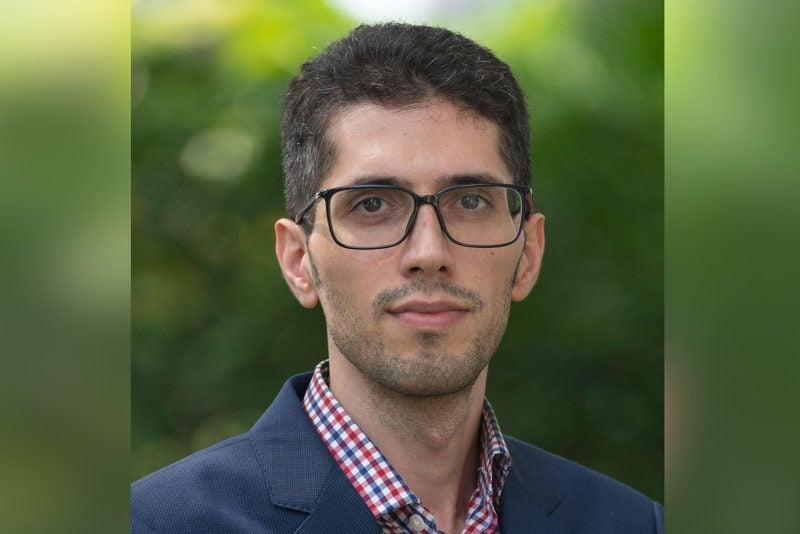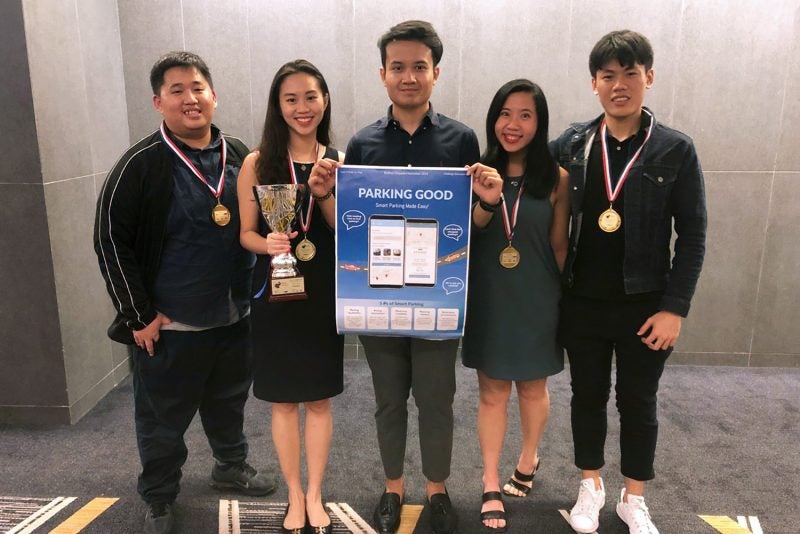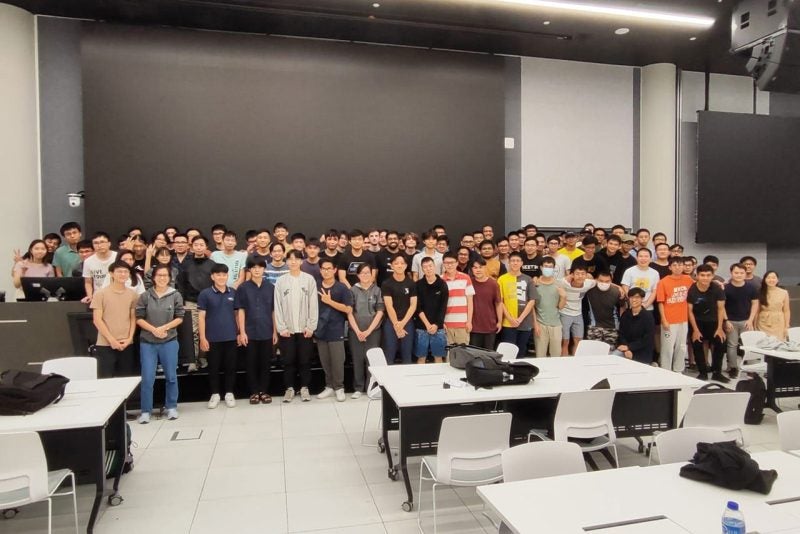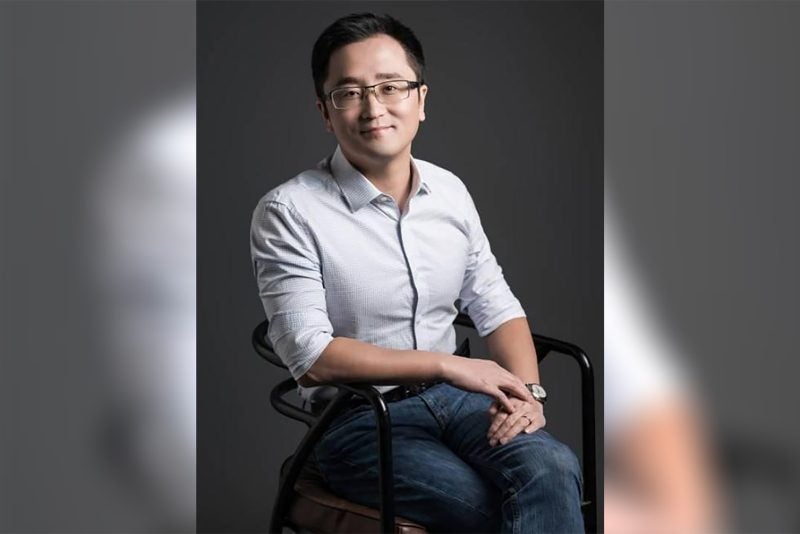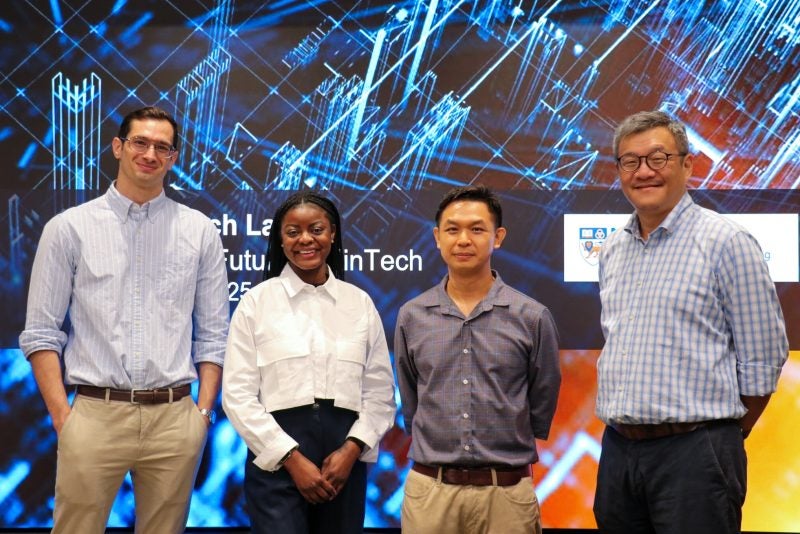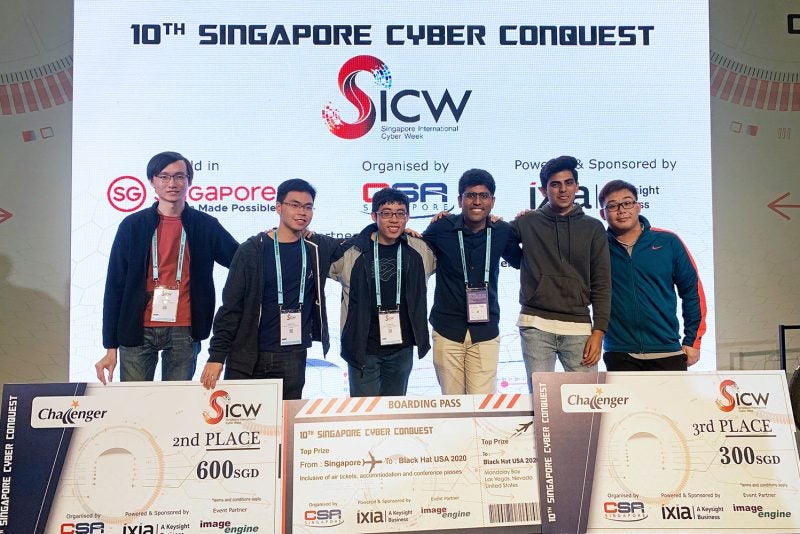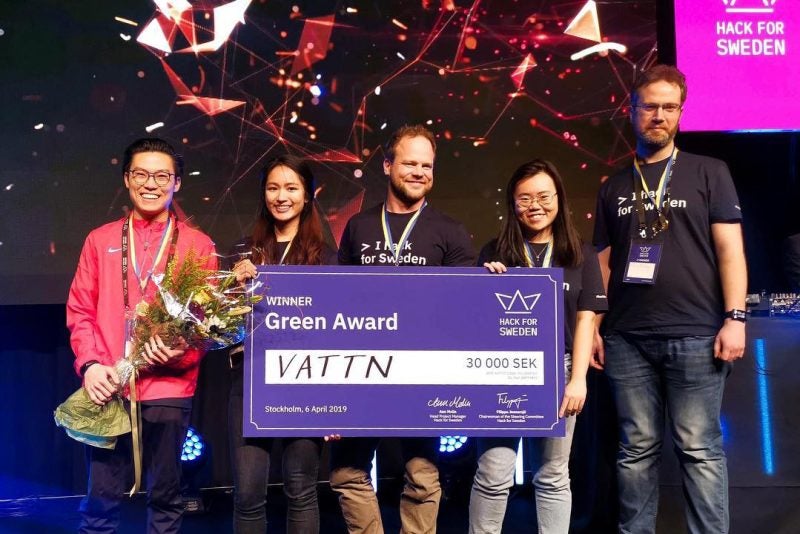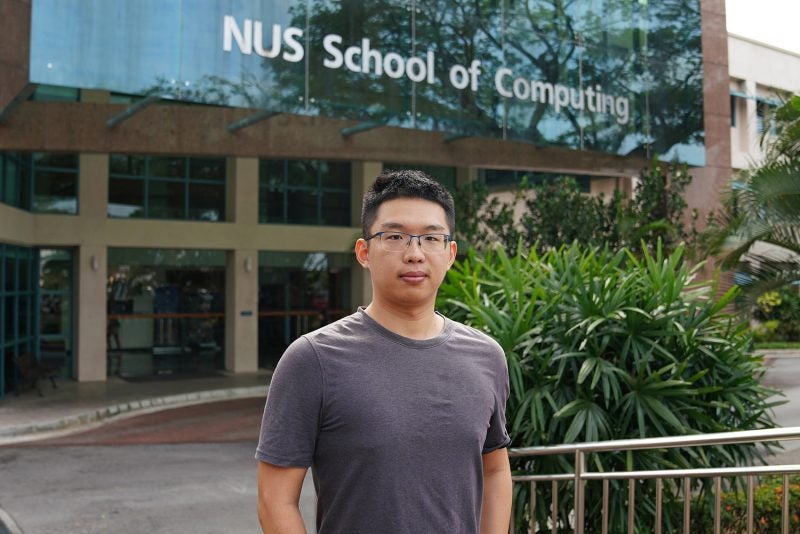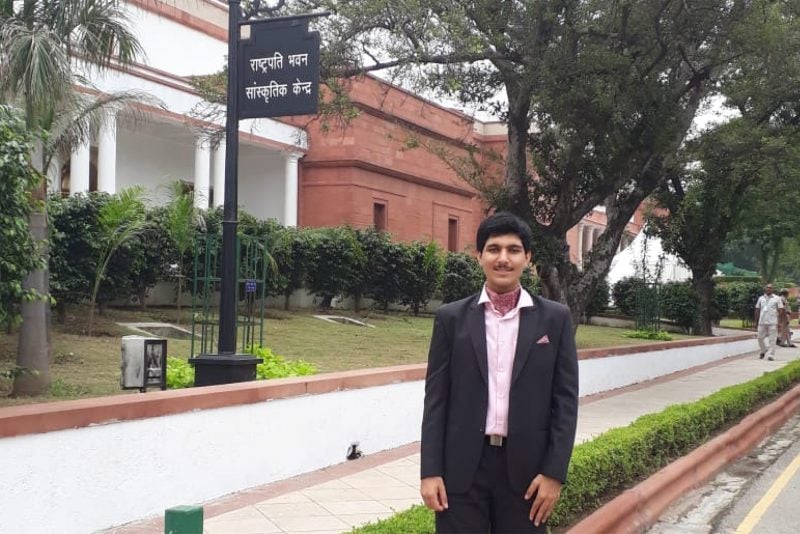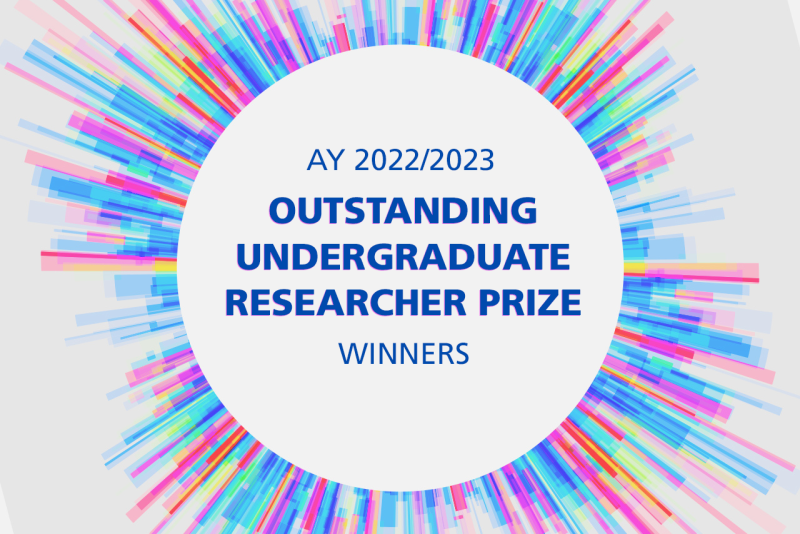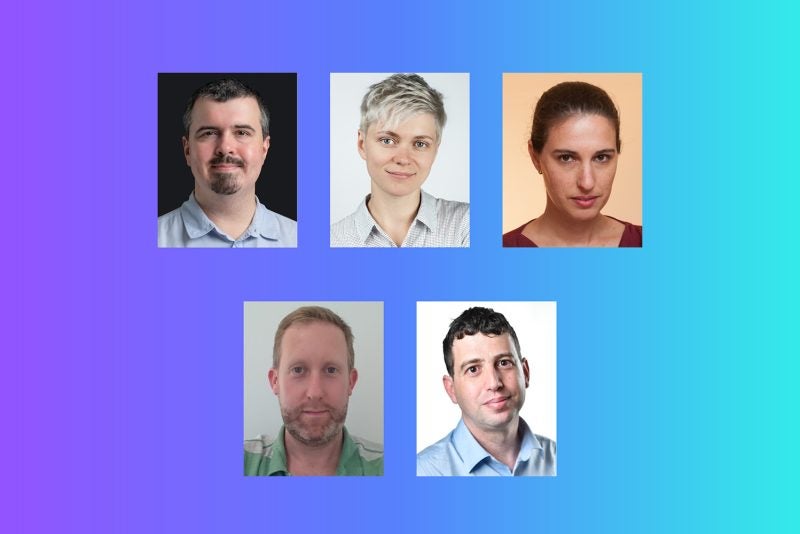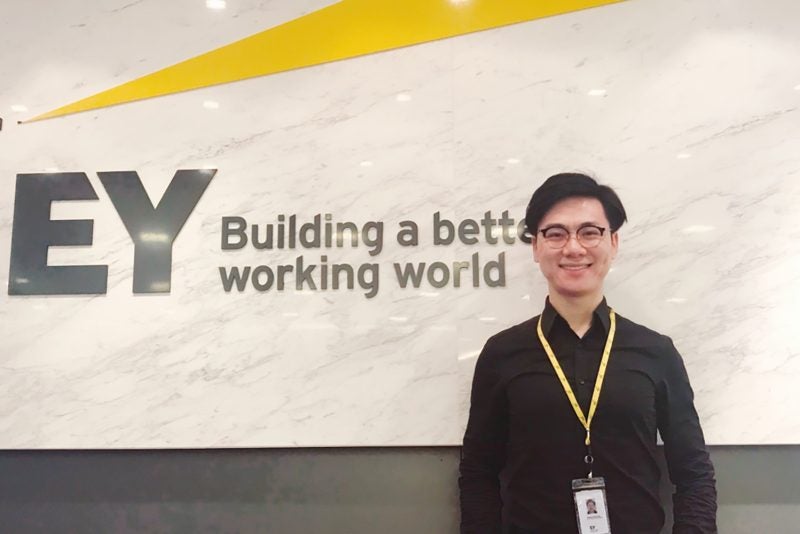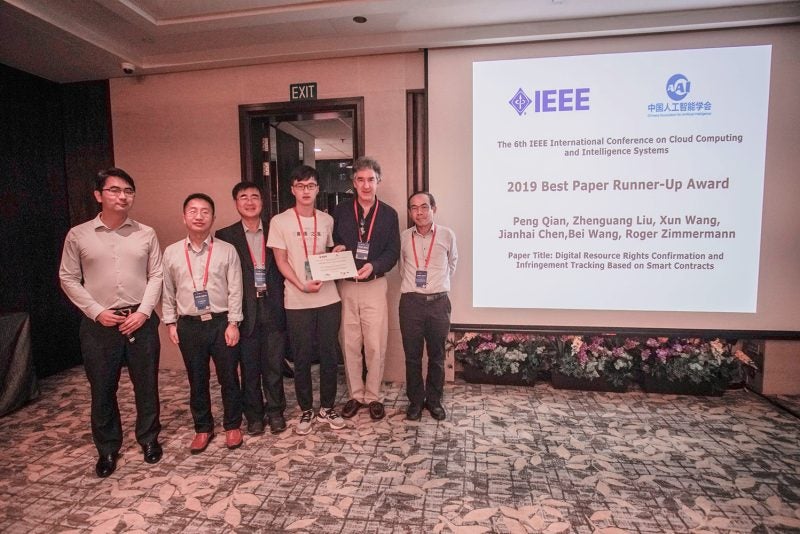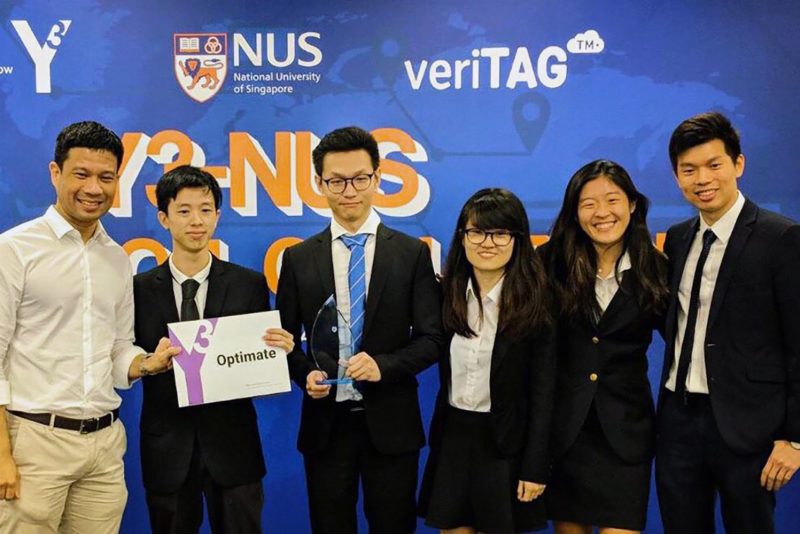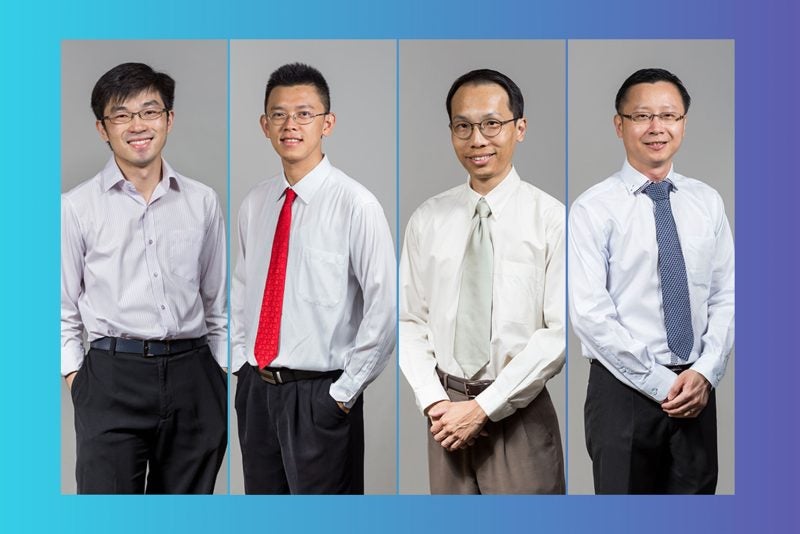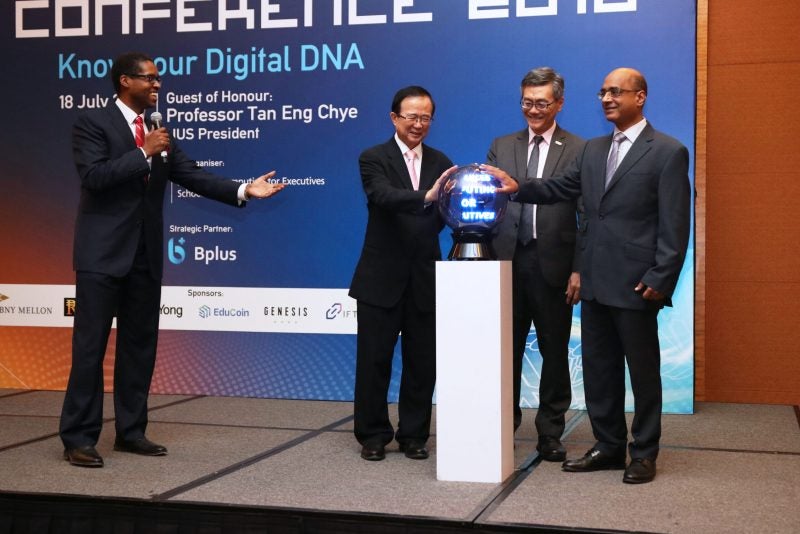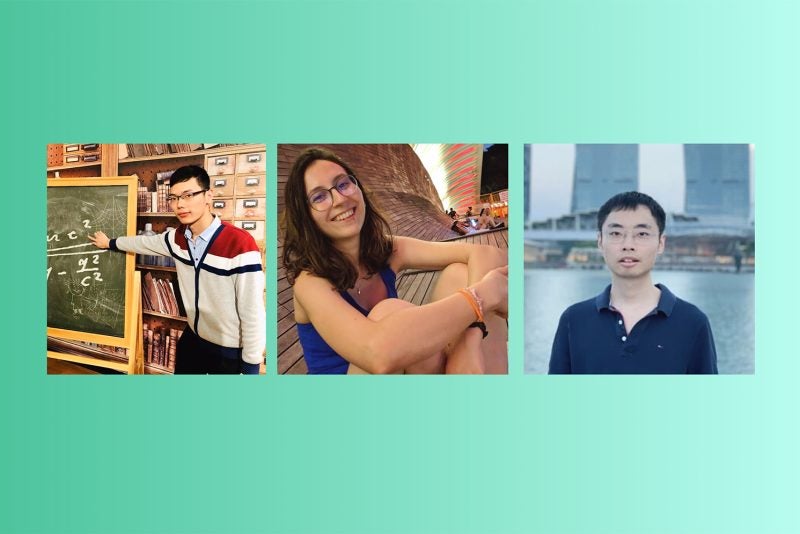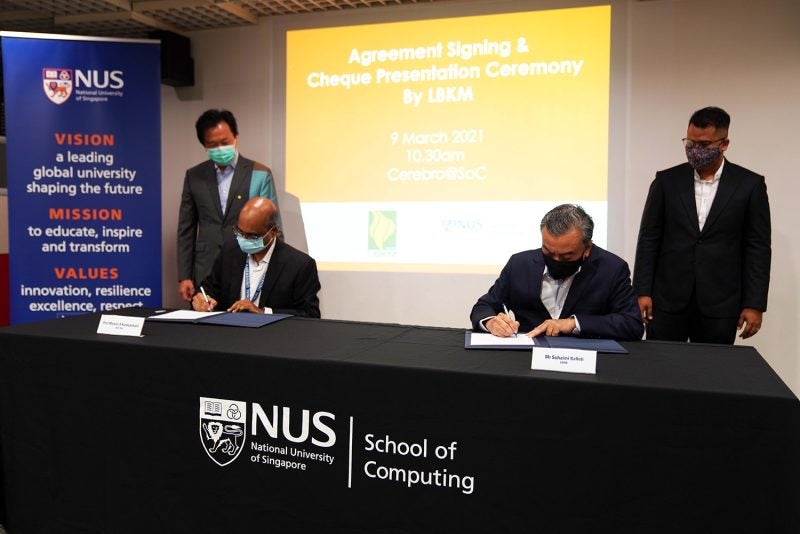26 December 2019 – NUS Computing teams excelled at four International Collegiate Programming Contest (ICPC) regional contests held from November to December this year. Team 7 Halim emerged as champions at the Manila regional contest, while Team Pandamiao won third place at the Taipei-Hsinchu regional contest.
These results follow the wins by Team Send Bobs to Alice and Team 3body3 at the Jakarta and Kuala Lumpur (KL) regional contests respectively.
“This is our best overall medal haul from the regionals, beating our previous best from last year. It will be hard to beat,” said NUS ICPC coach, Dr Steven Halim.
Team Pandamiao also came in ninth place at the Yokohama contest, while Team Send Bobs to Alice and Team Pokemon Goh came in fifth and tenth respectively at the Danang contest.
This rounded up the season for NUS Computing teams, who competed in seven out of eight ICPC regional contests held in the Asia Pacific region.
After good performances at the regional contests (champions in KL and fourth in Bangkok) Team 3body3 will represent NUS at the ICPC World Finals 2020 in Moscow, Russia next June.
NUS Computing’s participation in the 2019 ICPC regional contests was supported by generous contributions from Indeed, Sea Group, SenseTime, Jump Trading, Hudson River Trading, and DRW.
Lucky number 7?
The members of Team 7 Halim, second year students Steven Wijaya, Yehezkiel Raymundo Theodoroes, and Lim Li, previously competed in different ICPC teams. They formed a new team after members from their previous teams (ReFreshPHD and 3NationsIOI) retired.
As the team has two boys and one girl, their name was inspired by Team 7 from the Japanese anime Naruto, which also has the same team composition. Dr Halim’s name was incorporated into their team name in homage to their ICPC and competitive programming teacher.
Starting off in seventh place at the beginning of the contest, the trio worked their way up to third place at the 53-minute mark after solving a total of three questions.
They then took the lead at the 86-minute mark with five correct answers. However, they soon lost the lead to fellow NUS Team 3Sophonomore, who led the scoreboard with six correct answers, around 120 minutes after the contest started.
Fortunately, they managed to regain the lead at the 141-minute mark after Yehezkiel solved problem H with a single try.
“We were thrilled at that time to regain the first position with six correct answers and a smaller time penalty compared to 3Sophonomore,” said the team.
At the 238-minute, the team successfully solved their seventh problem with a single try. At the time, Team 7 Halim was at second-place, falling behind Team BBQube from National Taiwan University and ahead of Team 3Sophonomore.
As all three teams had solved seven problems, the trio had a feeling that the eighth problem would be the decider for the contest. They then focused on problem C, which they had almost solved.
They managed to solve problem C at the 264-minute mark, taking home the win with eight correct answers and a smaller time penalty compared to Team Registers from Vietnam National University, who came in second. The team also won three ‘first to solve’ prizes for problems C, H, and L.
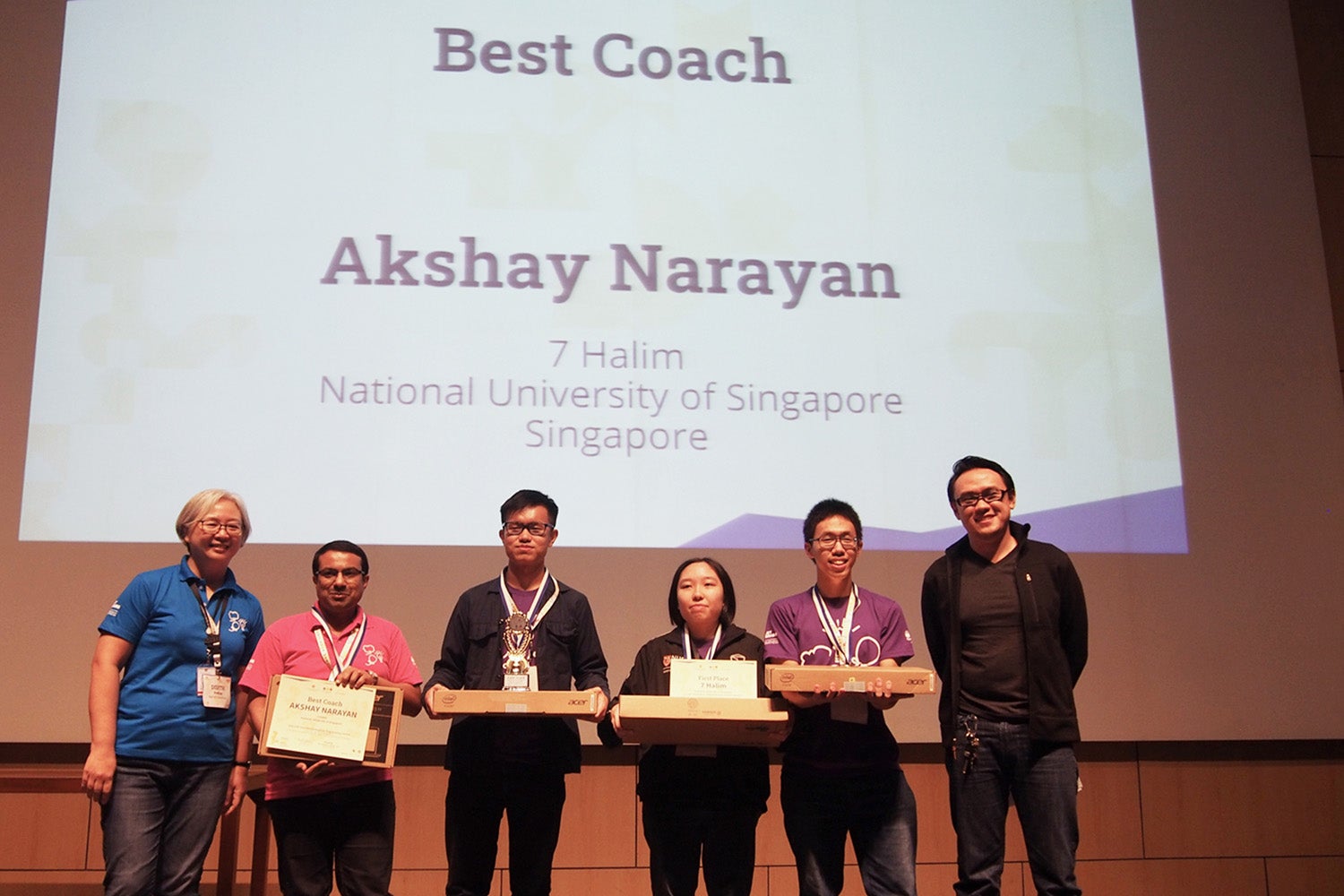
Their win continued NUS Computing’s winning streak at the Manila regional contest, after Team Pandamiao emerged champions in 2017. This is also the first time that each member of Team 7 Halim has won (and finished in the top three) a regional ICPC contest, with Lim Li being the first female student in NUS Computing history to do so.
“Honestly, we never expected to be the champions of the Manila contest. We were quite lucky as there were not many math questions, which is one of our weakest topics, and we won only by a small margin,” said the team.
“We would like to thank our coach Mr Akshay Narayan, who supported us and gave us valuable advice, Dr Steven Halim, who trained us and gave us many pointers on the kind of problems to expect, and Prof Tan Sun Teck, for organising training events,” they said.
‘Happy ending’ for ICPC veterans
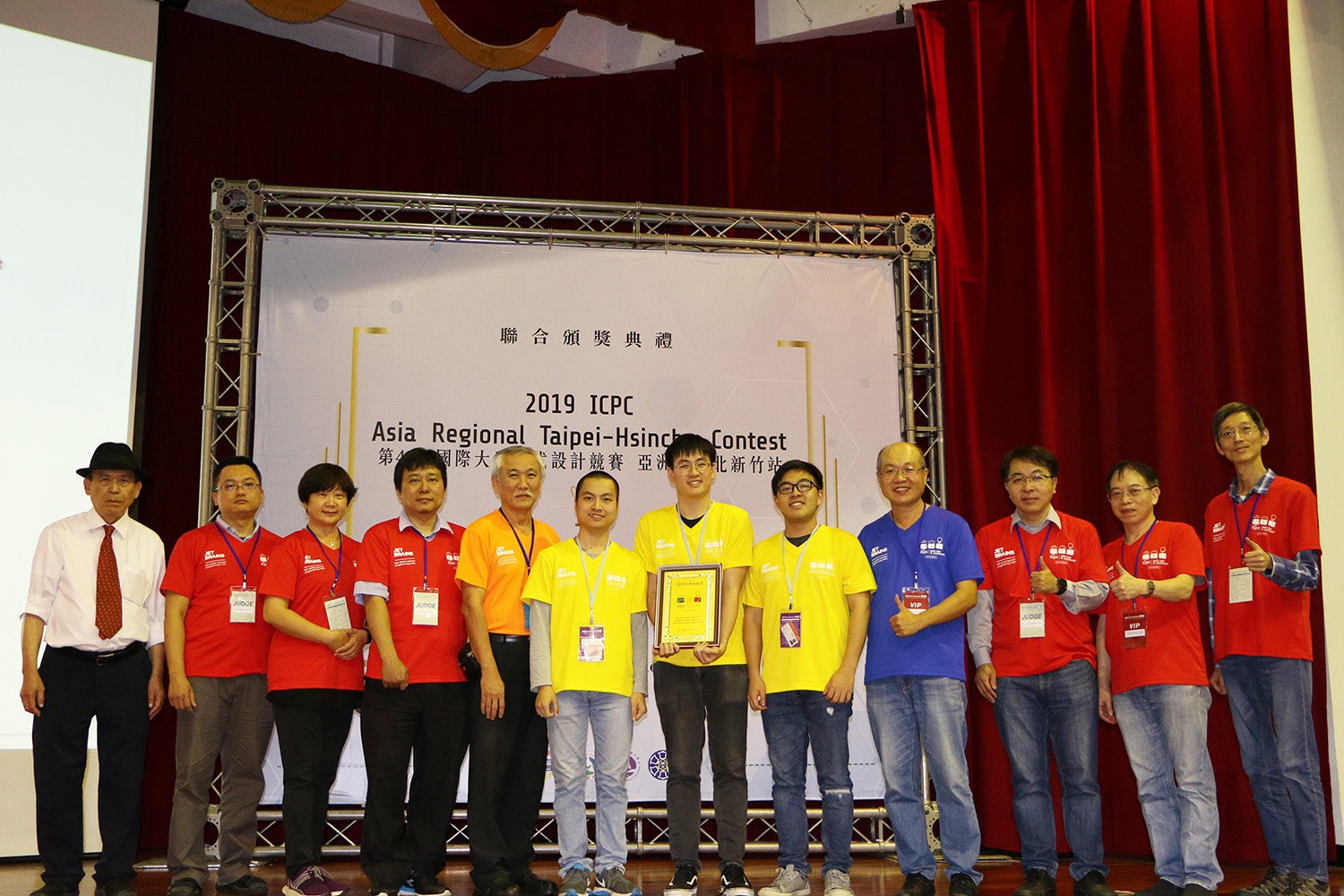
As all three members of Team Pandamiao (Gan Wei Liang, Ranald Lam Yun Shao, and Nguyen Tien Trung Kien) will graduate next year, this was their last time competing in ICPC.
Throughout their three years competing together, the trio have racked up impressive achievements under their belt—emerging champions at the Manila regional contest in 2017 and the Nakhon Pathom regional contest last year.
This year, they decided to push themselves further and signed up to compete in the Yokohama and Taipei-Hsinchu regional contests, said by the team to be the “two most difficult contest sites”. It was their first time competing in both contests.
“We all wanted to do the best, to end our competitive programming journey with the best results,” said the team.
As hoped, Team Pandamiao ended their ICPC journey on a high note: winning third place at the Taipei regional contest, and a commendable ninth place at Yokohama.
The results were unexpected to both the team and coach Dr Halim, as they said that both the Taiwanese and Japanese teams are well-known strong ICPC competitors. The Taipei regional contest in particular had multiple teams from National Taiwan University, who are traditionally strong competitors.
The team’s third place finish against such strong competition could be due to a last minute change in strategy the night before the contest.
While recounting stories of their past ICPC contests, Kien realised that he had overestimated his skills in solving geometry problems—although he could normally solve the problems without any cheat sheets, he did not manage to successfully solve any geometry problems in the ICPC regional contests they participated in.
On the other hand, he had underestimated his skills in solving dynamic programming (DP) problems.
“That night, we read a random problem from a contest last year. Within only a few minutes, I realised that it was a DP problem and quickly found the solution,” said Kien.
The team also recalled a time during a regional contest where Kien solved a hard DP problem quickly, thinking that it was a very easy problem. The trio then decided to change their strategy, assigning Kien all the DP problems and deciding to only solve geometry problems when there were no other solvable problems.
This strategy worked out well for them in the contest. By the 29-minute mark, Wei Liang and Ranald had worked together to successfully solve five problems.
After solving problem E at the 70-minute mark, Kien then worked on problem B, a hard DP problem, and managed to solve it on his first attempt, 198 minutes after the start of the contest. At this point, the trio had solved a total of eight problems.
Team Pandamiao ended the contest with nine correct answers after solving a geometry problem on their first attempt at the 261-minute mark, coming in third place before Team CRyptoGRapheR from National Taiwan University, due to a smaller time penalty.
They also won the ‘Best International Team’ prize and one ‘first to solve’ prize for problem B.
“We were happy when we learnt about the results as we all wanted to have a happy ending for our last ICPC contest,” said Kien.
“By winning third place, we can now retire satisfied,” he added.

